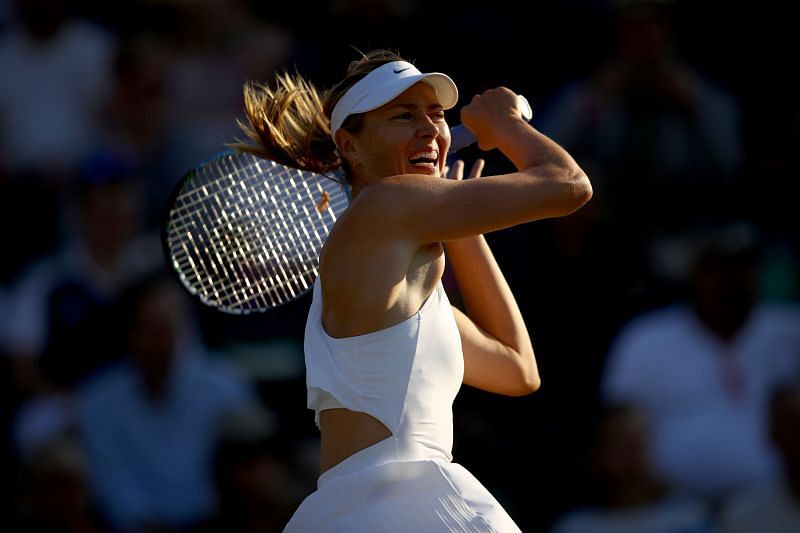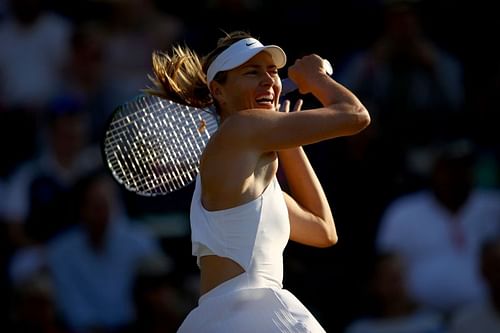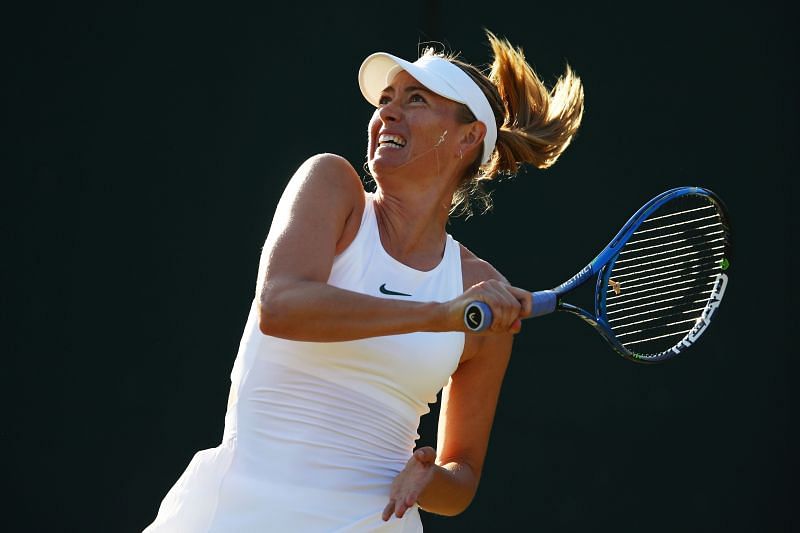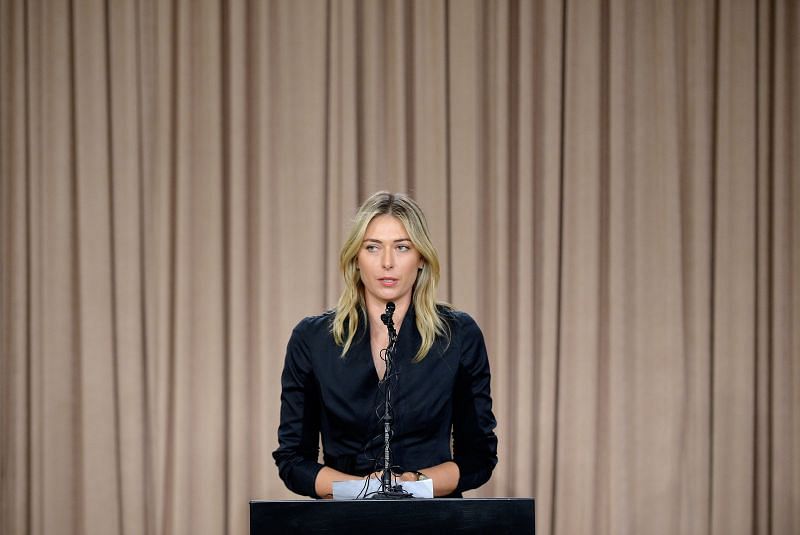
Maria Sharapova: The tennis champion eternally shrouded by a consumerist cloud

For the uninitiated, it would be almost impossible to fathom a side of Maria Sharapova that was not of a larger-than-life tennis supertstar and a successful businesswoman. And yet, there is, a lot more.
Sharapova catapulted to worldwide fame when she won the 2004 Wimbledon Championships as a 17 year old, beating none other than Serena Williams in the finals. There has been little looking back for the Russian trailblazer since.
But behind all the glitz and glamour, piercing forehands and loud grunts, lies a rags-to-riches story that the world conveniently ignored. And as she bids goodbye to a sport than made her a global brand, we take a look at just that lesser talked about side of her life.
Just another dreamer
Sharapova was born to Yuri and Yelena Sharapova in a town not far off of Chernobyl, right around the time of the nuclear accident. The family, which was based in Belarus prior to that, had to move a lot as part of the relocation process after the tragedy.
Sharapova never had a lot of money growing up as her family only made enough to make ends meet. She began playing tennis in Sochi, Krasdonar Krai with support from a family friend, who also got Sharapova her first tennis racquet.
Her penchant at wanting to do well at whatever she picked up saw Sharapova quickly impress local coaches.
A major turn came in Sharapova's life when her father decided to move to the United States at the recommendation of a certain Martina Navratilova. It was to have his young six-year-old daughter pursue a full time career in tennis.
Sharapova was still just a young girl wanting to do good at the only job she had known, which was hitting the ball as hard as she could (something that would later translate into a distinctive style of play). But to be able to do that in a foreign land, the language of which she could barely comprehend, was a scary thought.
To add to to the woes, visa troubles prevented her mother to move to the States with the family. But despite all that, there she was, in Florida, practicing hard without any family or friends (her father was always away looking for odd jobs to pay for her tennis).
The tennis ace recalls feeling alone all the time in her autobiography, Unstoppable. She called it the hardest time of her life, but she continued to persevere. And after years of actual blood and sweat effort, results began to flow in.
Sharapova, building of a brand

Then came the watershed moment that would go on to change everything for Sharapova, the memorable 2004 Wimbledon final that saw her beat Serena Williams to capture her first slam and initiate what has now become one of the most famous rivalries of tennis.
The world was quick to celebrate the arrival of a new star, but quicker to pit her against another. Media gaze has often been regressive for women's tennis and many within the industry believed that a spiced up, on and off court strife would be the best way to attract eyeballs to the sport.
Sharapova and Serena might have wanted to be friends, but the world needed them to be bitter rivals. And so they were, for a large part of their careers. Sharapova wrote in her autobiography,
Only a few people in the world know what we know — what it feels like in the dead center of this storm, the fear and anger that drive you. [...] But we are not friends — not at all. But who knows, when all this is in our past maybe we'll become friends.
And when that wasn't enough, there was the business machinery that began working tirelessly in building the Sharapova brand. Skinny, white and blonde; conventionally beautiful in short, Maria Sharapova was an advertiser's dream.
There has been something inherently wrong with the way that the industry has marketed female athletes. The only images that world gets to see of them are their dolled-up facades, heavily edited for the sole purpose of feeding the consumer fancy.
The likes of Forbes magazine's Miguel Morales have long highlighted the problem, but little has changed. A Eugenie Bouchard continues to rake in the big bucks without having to do much on court, and due to not fault of hers.
Sharapova was one of the first big victims of this frenzied branding spree. As a seventeen year old, it is hard to believe that she would have known any better.
And with every passing interview and every new magazine spread, the pretty girl with a business acumen facade kept growing, at the cost of her deeply personal lived experiences.
What does the future hold?

Sharapova had another go at a career when she came back from her doping ban looking for a fresh start, but the world wouldn't go any easier on her the second time either. She was under a constant critical gaze, often of detractors who were banking on her to fail.
And funnily enough, it wasn't a different crowd, but instead, those very people who made her into an institution that wanted to pounce on the first chance to undo her entire life's work. All of that, only because a news piece based off of a champion's unbecoming would sell better than one of her steady progress on return.
Sharapova won, and she won big on her return, but it was when she lost that the world took notice. The pleasure was increasingly diminishing for even a fighter like her, and it was once again, for no fault of hers.
It was the world that failed to ever realise the Maria Sharapova for who she truly was. Behind the facade, one that the tireless marketing machinery built for her, was just another young girl who dreamt of winning big at a sport that she loved dearly, one that she gave up her entire life for.
The world failed Sharapova and continues to fail female athletes, who are made to go through excruciating ordeals to live up the unrealistic standards set by capitalist sharks and an often spineless media.

At the time of her doping ban press conference, Sharapova jokingly said that the day she would announce her retirement, it would not be in a downtown L.A. hotel with "this fairly ugly carpet". At the time, she would have dreamt of a much grander send-off.
But when it came down to it, when it was really time, she went back to a deeply humble and personal space. A retirement announcement on her Instagram handle with a photograph of her as a young girl does not fit into the narrative that was built for her.
But by going back to the time when nothing other than a young girl's love for a sport mattered, Sharapova might have just played the best game of her career yet.